
Ingremart: Optimizing CS-Cart
for Wholesale Ingredient Trading
in the B2B Sector
Ingremart is the first specialized B2B marketplace for wholesale trading of raw materials and ingredients. The assortment includes hundreds of thousands of ingredients in more than 45 categories across various functional classes for industries of all sectors. For example, they supply potassium sorbate for confectionery factories, mineral additives for animal feed mixes, and natural flavorings for alcohol production.
Business: wholesale ingredient trading Country: Russia Website: Ingremart
Client’s Problem and Objectives
The client operates a large-scale business supplying ingredients both in large and small wholesale quantities. Their customers include food manufacturers, bakeries, confectioneries, livestock farms, pharmaceutical, and cosmetic industries. The logistics were well-established, with their own warehouses.
The client aimed to create a unified service platform for B2B ingredient trading, a first of its kind. This marketplace would:
Objectives
Help manufacturers and suppliers of ingredients find each other.
Expand the audience for both sales and procurement by attracting new buyers and sellers.
Make it quicker and easier for buyers to place wholesale orders.
Reduce sellers’ costs through the automation of business processes like marketing, sales, logistics, document management, and communication, making them easier to manage.
Provide a new revenue stream: earning not only from their own supplies but also from commissions on other sellers’ sales.
They needed a marketplace that took into account the specifics of wholesale ingredient sales and developed convenient management tools. The challenge was to solve the problem of price and inventory calculation for wholesale sales of products in various packaging: small boxes, pallets, individual items, and composite orders with different packagings.
When they approached us, the client had a good understanding of their target audience and business specifics: who buys and sells, how they prefer to operate, and decision-making features. They had conducted preliminary analytics and had clear requirements.
What We Did
Solved Packaging Issues
Wholesale trading requires selling products in various packagings: from a few boxes to pallets. For example, the food colorant “Allura Red” can be packed in 50g, 1kg, and 25kg as per the buyer’s choice. CS-Cart’s default price setting per unit was unsuitable for the client. We needed to teach CS-Cart to calculate product prices (including wholesale), the number of packages, and stock levels based on product packaging.
We implemented a mechanism that added a new characteristic to products — type of packaging. Sellers can flexibly configure their products and sales methods: some products can be sold per unit, others in small or large wholesale quantities. Buyers can add products to the cart in any available packaging, choosing the type of packaging and the number of kilograms. Consequently, we had to refine the inventory tracking mechanism, allowing automatic tracking of both unit and weight-based product deductions.
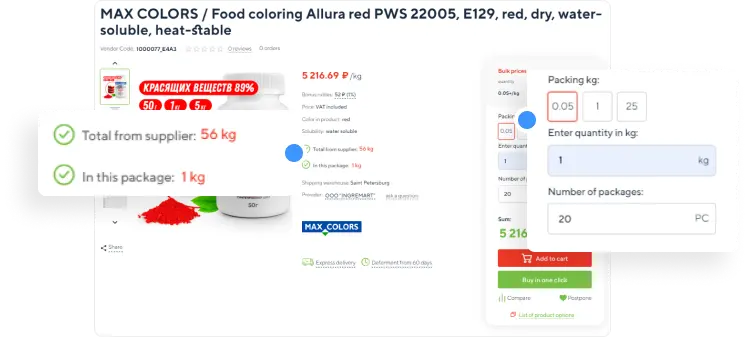
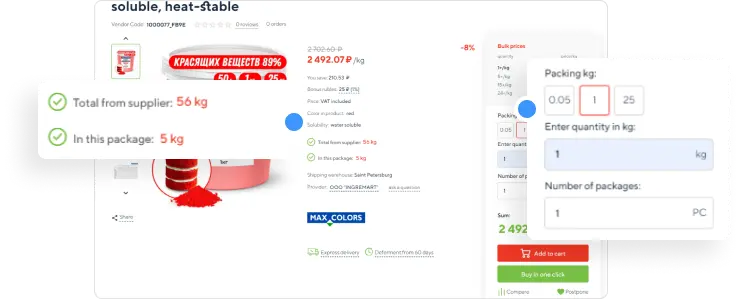
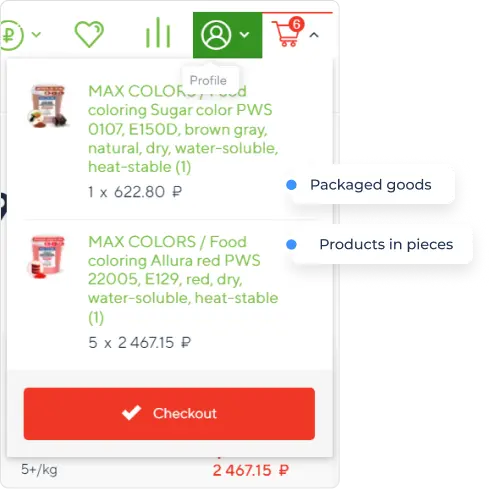
Depending on whether packaging options are enabled for a product, wholesale discounts, bonus points, and cart recalculations apply.
For instance, in the cart summary, the quantity and cost of products are shown considering the packaging. If the product has no packaging options, it is shown in units.
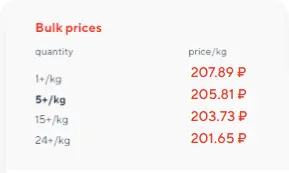
Wholesale prices are displayed based on kilograms. If a buyer wants to purchase 5kg of a product, this price is applied in the cart.
If the product’s price type is “units,” wholesale discounts are indicated in units.
Unique B2B Design Without Additional Costs
We based our design on the UniTheme2, whose look and functionality suit any business direction. By smartly personalizing the template, the marketplace’s appearance was differentiated from others developed on the same theme, without additional costs and in a short timeframe.
We customized the standard interface according to the B2B specifics and user scenarios of buyers and sellers. Through branded colors, styles, and graphics, we added visual architecture and individuality. Small visual changes gave the marketplace its unique look.

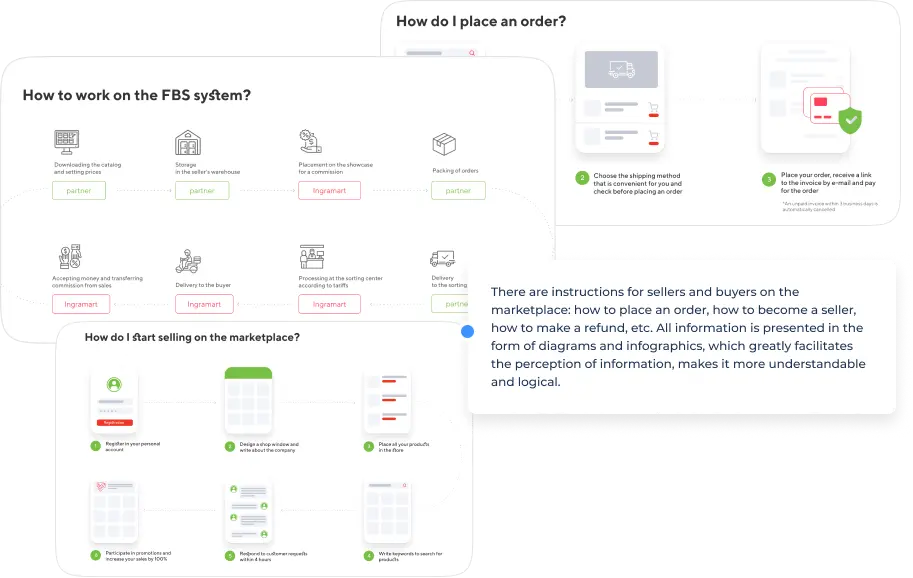
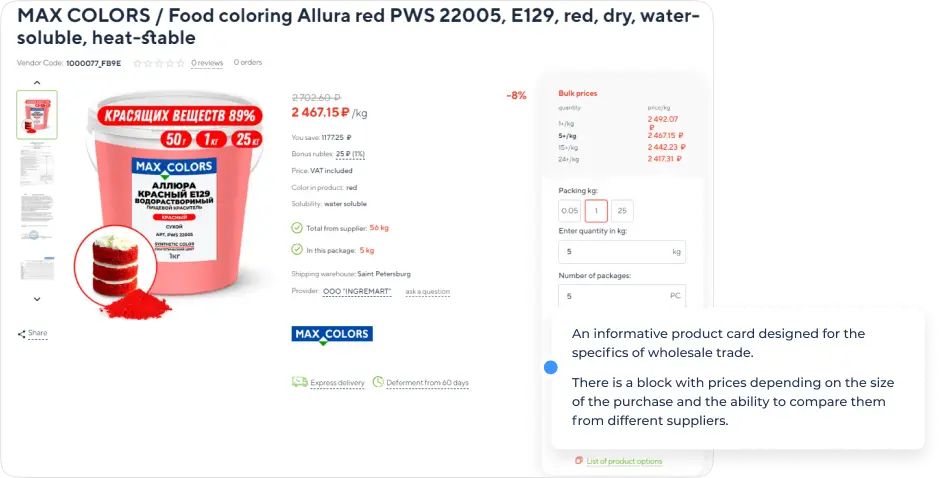
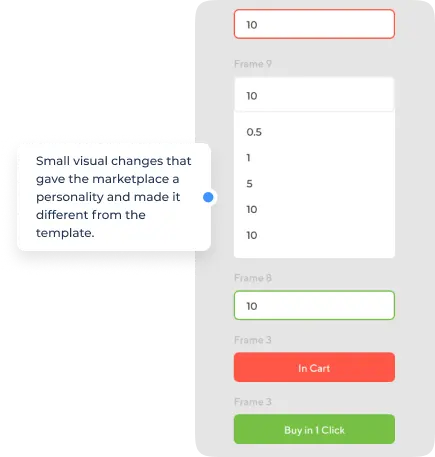
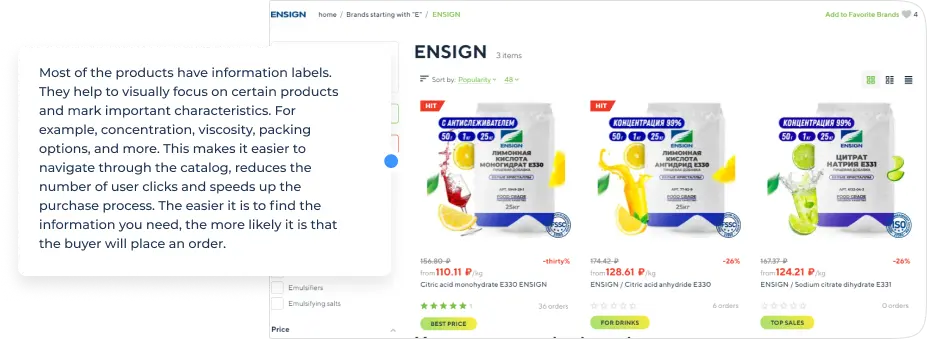
The marketplace is attractively displayed on any device, thanks to proper adaptive layout.
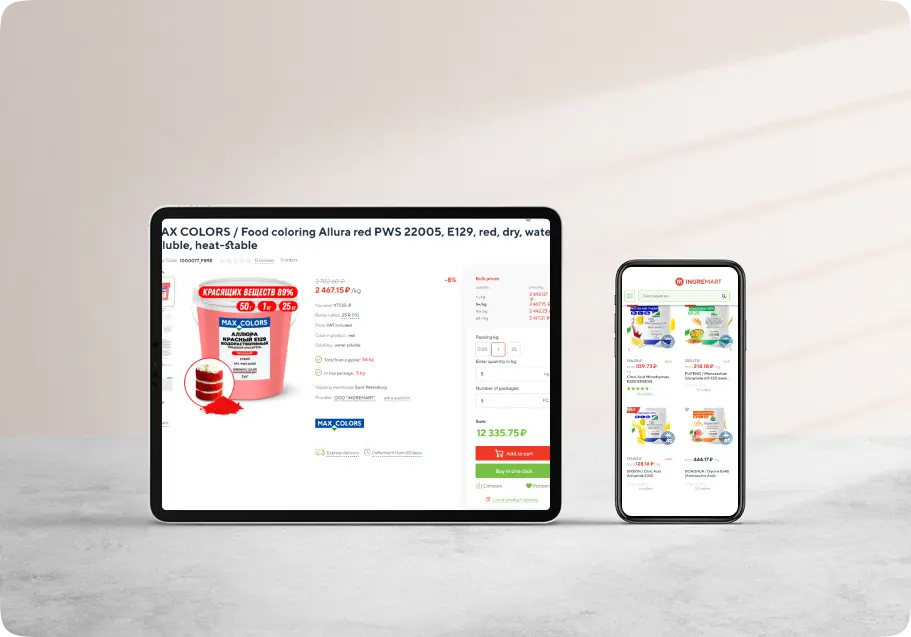
User-Friendly Learning Management
New sellers and buyers might encounter difficulties using the marketplace: issues with registration, receiving invoices, and placing orders. To prevent this, a training section with videos helps users quickly master the platform’s functionality and reduce the likelihood of errors.
We added convenient templates like “Single Video” and “Training Video Grid,” making it easy for administrators to manage the marketplace’s training section.
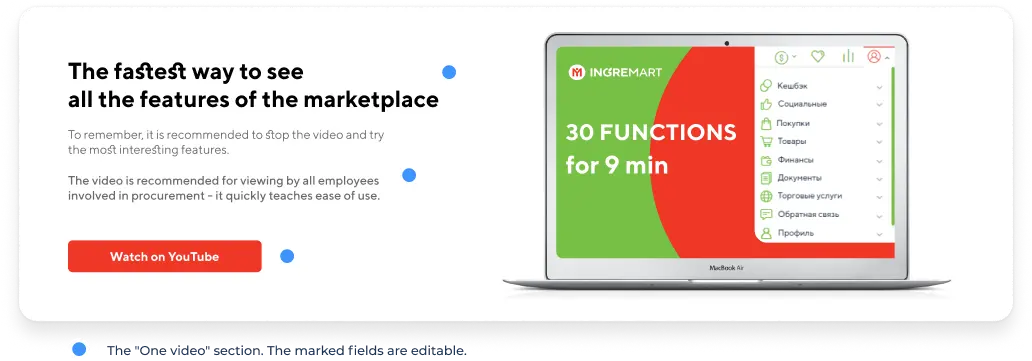
Enhanced Brand Management
Manufacturers in the food, pharmaceutical, and other industries often rely on the brand of a product when making decisions. To make it easier for them to place orders for specific brands and navigate the catalog overall, we significantly redesigned the CS-Cart’s brand functionality.

Each brand has its own landing page with descriptions and customizable banners. This is important for SEO when buyers search for products through branded queries in search engines, for example, “buy Ensign citric acid.” The page includes information about the brand, products, and brand lines. By clicking the “All products” button, buyers can view all products of that brand and add them to the cart.
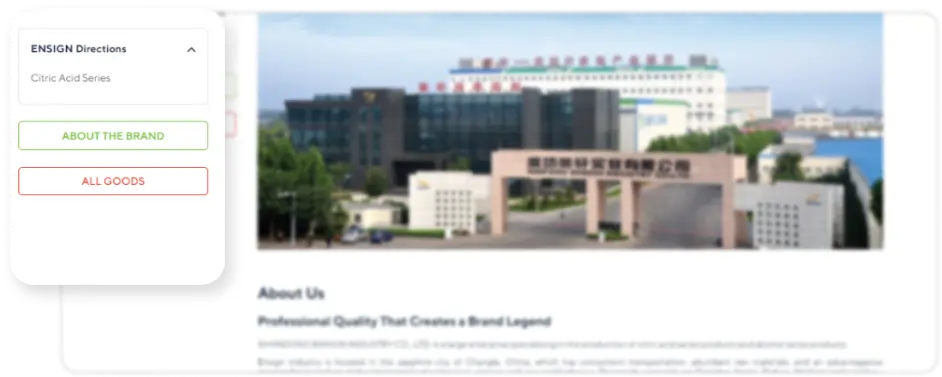
Brand lines function as product characteristics. In the administrative section, when setting up options for this characteristic, it is possible to assign a brand to a line. This way, the brand and line are linked together. Consequently, on the brand pages in the “Directions” block, the brand line will be automatically displayed.
Expanded B2B Checkout
All checkout changes aim to improve the user experience for wholesale buyers, boosting sales and customer loyalty. We combined the order page and cart: buyers can add multiple products to the cart and check only the needed ones using checkboxes. This allows wholesalers to select and order needed products quickly and conveniently without switching between pages.
There is a separation between the consignee and the buyer if they do not match, forming separate payment and shipping documents. Depending on the chosen legal entity, the available delivery addresses list changes. Forming different document types for each avoids confusion and errors in order processing, crucial for wholesale transactions.
Products are grouped together if they share the same vendors, payment methods, addresses, delivery time, and date. These products are then considered as one group and a single delivery will be applied to them. This means the delivery is applied to the first product in the group, while the others will be marked as “Combined with.” This approach reduces the number of steps during checkout, allows products to be consolidated during shipping, and enables a single delivery.
Buyer’s Personal Account as a Procurement Management Tool
We expanded and fully customized the profile menu, adding numerous clickable sections with subcategories like cashback information, social media integration, trade services, documents, etc. The buyer’s personal account turned into a full-fledged platform for procurement specialists, combining all necessary tools for their work and automating routine tasks.
Two interesting sections not provided by default in CS-Cart are “Offers” and “Purchased Products.”
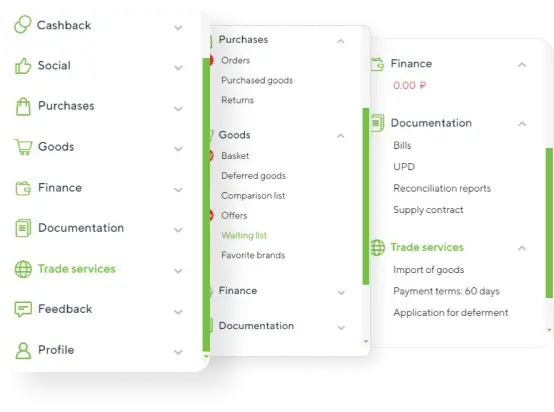
The “Offers” section serves the purpose of streamlining procurement processes for buyers by providing them with a convenient platform to specify their recurring ingredient needs and receive corresponding offers from suppliers. For instance, if a buyer regularly requires specific ingredients such as xanthan gum in quantities of 1000 kg, citric acid up to 10000 kg, and sodium glutamate up to 1000 kg, they can input this information into their profile settings upon registration.
This information is stored in the buyer’s profile, and all available offers from suppliers are compiled in the “Offers” section within their personal account. Consequently, buyers no longer need to browse through the catalog each month to find the required products and choose the best offer manually. Everything is automatically populated into their personal account, simplifying the process to select a supplier and place an order. The user-friendly interface allows for easy comparison of prices, packaging options, and available quantities without leaving the page. Buyers can add preferred offers to their cart with just one click.
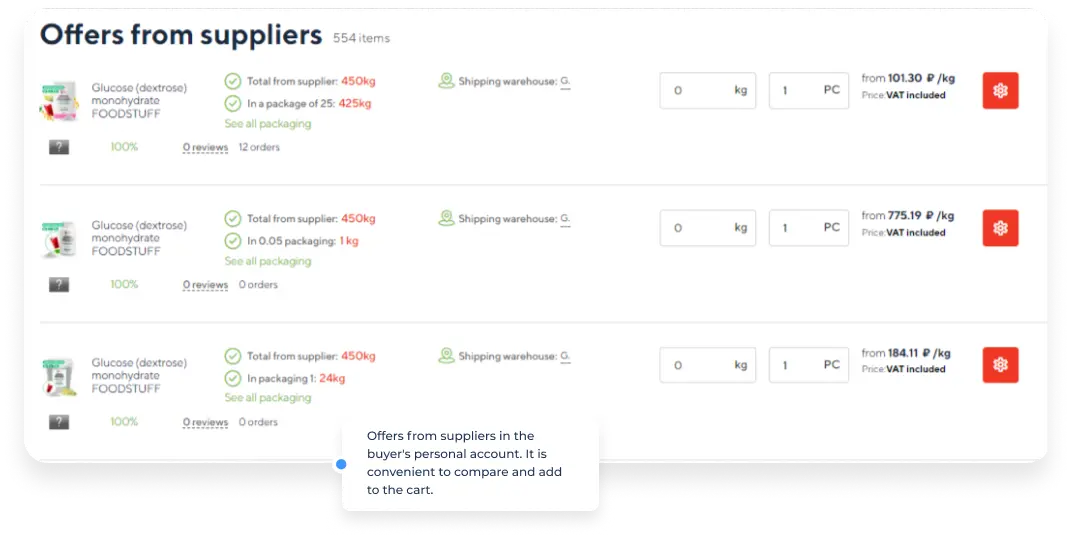
In the “Purchased Products” section, all completed orders are saved. For buyers with recurring purchases of the same ingredients, they can easily reorder through this section, saving time for procurement specialists.
Loyalty Program for Wholesale Sales
The marketplace operates a loyalty program in the form of cashback. In regular retail online stores, cashback depends either on the product or on the total order amount. In the case of wholesale sales, cashback is tied to the volume of purchase for a single item.

The more of a single item a buyer purchases, the greater cashback they receive. This encourages buyers to order larger quantities of items. The percentage of bonus points awarded depends on the order value and can be adjusted in the administrative panel, subject to the administrator’s discretion. Bonus points can have customizable expiry dates and notifications, so customers will automatically receive reminders that their bonus points will expire.
Brief information about the bonuses that will be accrued upon purchase is displayed on each product page. When hovering the mouse cursor, a window with information pops up.
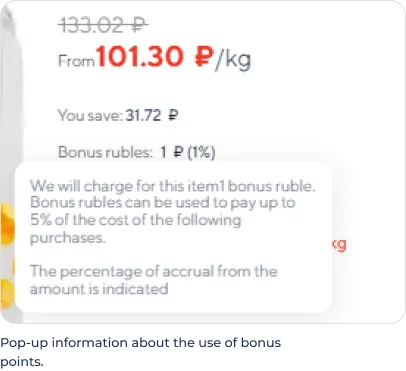
Additional Revenue from Promoting Individual Sellers
There are several monetization methods for the marketplace: sales commission, monthly subscription, placement fee, and more. One unique method is paid promotion, such as highlighted ads, higher ratings, and top positions in listings. To enable this monetization model in the future, we added a customizable section in the catalog called “Favorite Stores,” editable by the marketplace administrator.
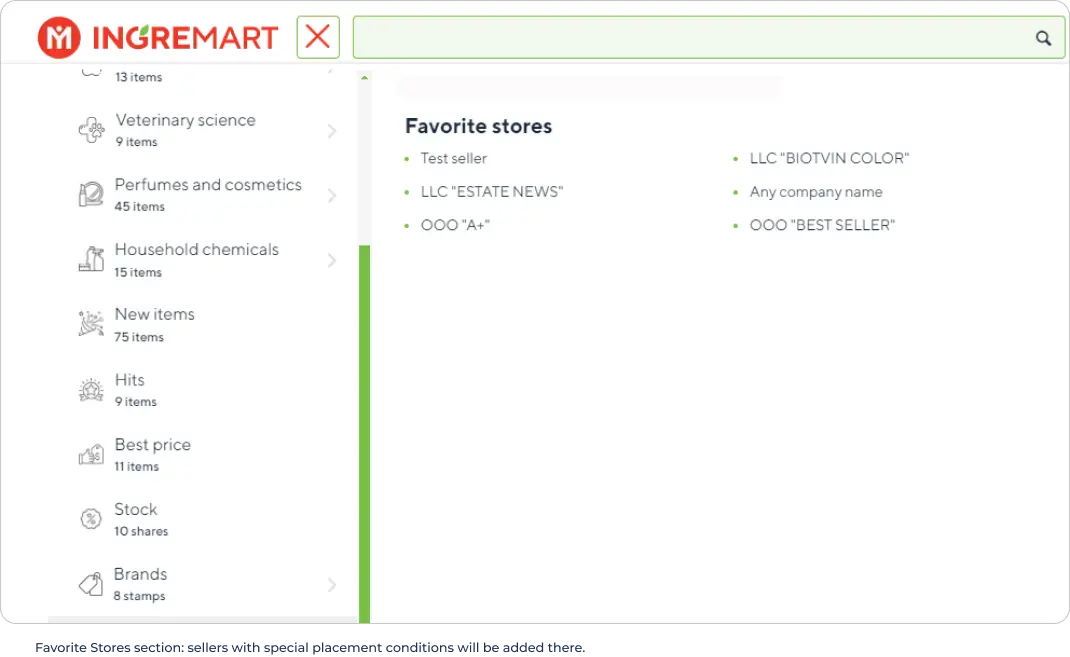
Attracting Sellers with a Trial Period
Sellers registering on the marketplace often distrust the platform, wanting to ensure it has buyers and is user-friendly. A free trial period is an excellent solution to this issue. During the trial period, sellers can familiarize themselves with all marketplace functions and features, evaluate its benefits, and make an informed decision about starting to work on the platform. This also allows sellers to attract new clients and expand their customer base without additional advertising costs.
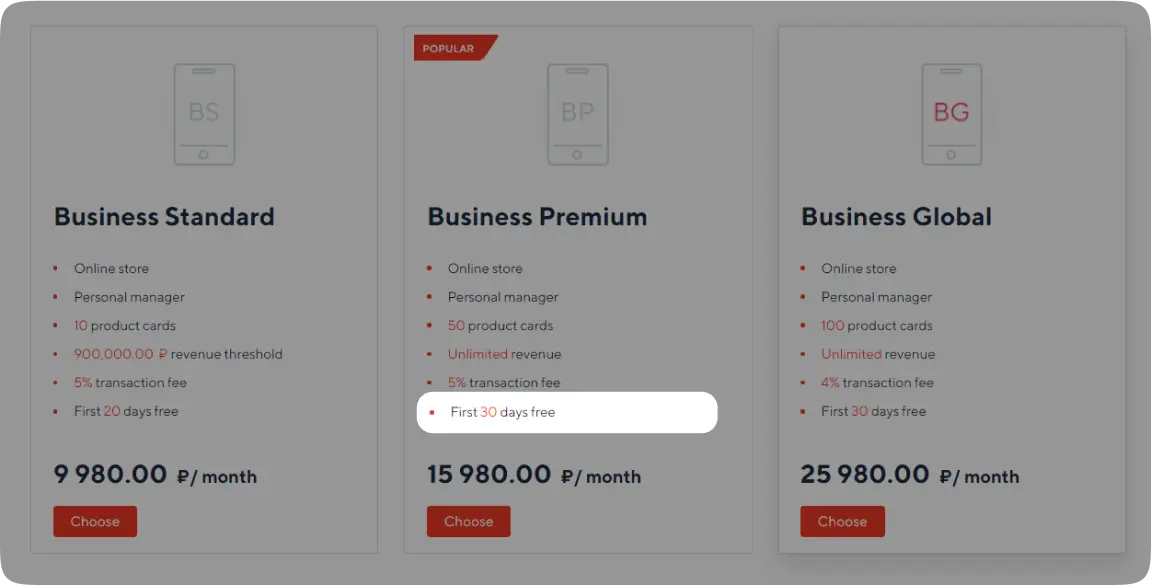
If a tariff includes a free period, the “Become a Supplier” page automatically notifies the seller about it.
A CRON command checks the trial period’s status, notifying the seller about its end and prompting them to choose a paid plan.
Results
A highly trafficked wholesale marketplace for B2B, featuring approximately 5,000 brands of manufacturers of ingredients for the food, pharmaceutical, perfume-cosmetic, and chemical industries of Russia and the CIS.
- Convenient buyer’s personal account that encompasses all nuances of wholesale ingredient orders: from design and tooltips to automatically compiled supplier offers.
- Revised logic of CS-Cart in terms of pricing.
- Changes in wholesale prices of products, carts, and stocks depending on the chosen packaging.
- Takes into account buyer preferences and seller capabilities.
- Automated document workflow: automatic contract conclusion, invoicing, and cancellation.
- A bonus program tailored for wholesale trade.
- Educational sections for suppliers and sellers with a large amount of infographics.
In April 2023, Ingremart launched the first part of its fulfillment center in the Leningrad Region. This new center, capable of processing over 2,000 orders per day, provides wholesale buyers from the Northwestern Federal District with the opportunity to receive their orders the next day. Expanding such a large-scale complex will contribute to the development of entrepreneurship in the region, including small and medium-sized businesses. The fulfillment center will enable local entrepreneurs to expedite product deliveries to the platform and reduce logistics costs. Goods stored at the Ingremart Northwestern hub can be sold throughout Russia and abroad, opening up new opportunities for local suppliers to expand their businesses.
Create your fast scaling marketplace easily. Integrate with CRM, Ebay, or Amazon. Sell anything on the website, on social media or in person.

Let’s discuss your idea!
We will provide you with any help to create your project, estimate the time and the cost of your marketplace.



